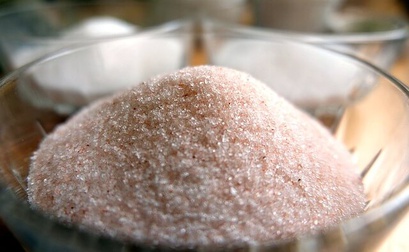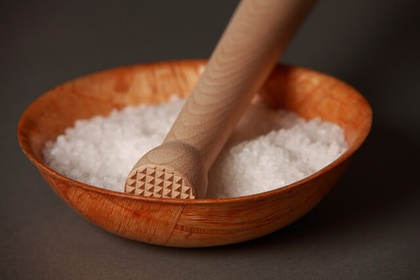Many people consume too much salt, that's a fact. Researchers from the University of Iowa (USA) have discovered the potential reason why we like this salt so much: it is likely to raise our mood.
A psychologist, Kim Johnson and his colleagues, have discovered in their research that when rats are deprived of sodium chloride, i.e. table salt, they turn away from activities they normally enjoy, such as drinking a sweet substance or squeezing a bar that stimulates a pleasant sensation in their brains.
"Things that are normally pleasurable to rats did not elicit the same degree of delight, leading us to believe that salt deprivation and the associated craving may cause one of the key symptoms associated with depression," Johnson said.
The researchers at the University of Iowa cannot confirm that this is a state of total depression because different factors are involved in such a diagnosis, but in any case there is undoubtedly a decrease in pleasure in usually pleasant activities, which is one of the most important psychological symptoms of depression.
And the idea that salt is a natural mood corrector and elevator might help explain why we are so tempted to over-consume it, even though we know full well that it is a factor in high blood pressure and heart problems, among others.

How much salt do we consume?
Previous research has shown that the average global consumption per person is about 10 grams per day, which is far more than the recommended 4 grams per day, and already an excess of 8 grams over what our bodies actually need.
In addition to their own findings, the researchers examined the results of other scientists' research into the reasons behind salt craving. Today, salt is found in high concentrations in many foods, from pancakes to pasta, but originally it was a rare commodity. Salt consumption and price skyrocketed around 2000 B.C. when it was discovered to preserve food. Roman soldiers were paid in salt; the word "salary" is derived from the Latin word for salt.
Even when mechanical refrigeration reduced the need for salt in the 19th century, its consumption continued in excess, because people liked the taste and it had become really cheap. Today, 77% of our salt consumption comes from ready-to-eat or preserved meals, such as frozen meals and fast food.
Evolution has undoubtedly played an important role in the human taste for salt.
If you look closely, there were originally creatures that lived in the salt water of the ocean. Once on earth, the body continued to need sodium and chlorine because minerals play a key role in our body's intra- and extracellular fluids and in the transmission of nerve impulses.
But as humans evolved in the hot climate of Africa, transpiration deprived the cops of sodium. Salt at that time was not very abundant because our ancestors had a diet rich in plants and they lived far from the ocean.

The taste of pleasure: beware of addiction
We are equipped with a taste system made to detect salt and a brain that remembers the location of salt sources. A pleasure mechanism is activated in the brain when salt is consumed.
In conclusion, the body needs salt and knows how to find it and how to store it. But today scientists agree that it is an addictive and abused substance - almost like a drug. A sign of addiction is using a substance even when you know it is harmful.
Bref, the indispensable salt, source of pleasure.... but consume in moderation!



